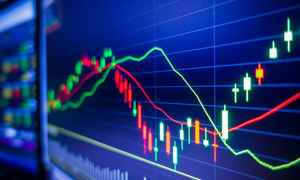a.s.r. Nederland aims to substantially increase the number of impact investments for its own portfolio by 2024. Impact investing is distinguished by the intention to generate not only a market-based financial return but also a positive impact on a sustainable future for people and the planet.
Impact Portfolio
Companies are selected that make a positive contribution to solving one or more social and environmental problems with their products, services, technology, or infrastructure. This is achieved, among other things, by investing in stocks that have a measurable and positive impact on the environment and society and can therefore be classified as sustainable investments. The equity team at a.s.r. asset management has been successfully managing the impact portfolio since 2019. That is why impact investing has now also been made accessible to customers with the new ASR Global Impact Equity Fund.
ASR Global Impact Equity Fund
The ASR Global Impact Equity Fund (AWIAF) selects companies that have a measurable and positive impact in ecological and social areas. The United Nations Sustainable Development Goals (SDGs) are used to determine the categories of sustainable goals to which the companies that are part of AWIAF must contribute. These are 17 goals set by the United Nations to achieve a sustainable world for everyone by 2030.
The fund invests in companies that address important social or environmental issues, while at the same time striving for a healthy financial return on investments. The fund includes companies that have a demonstrable positive impact on people, the environment, and society. The companies all have a specific sustainability objective and have been included in the fund after a very strict and extensive selection process. These are companies that can substantiate their positive impact with data and insight into the company and that demonstrably do not harm any environmental or social objectives.
A maximum of 30 such listed companies are included in the AWIAF. This is deliberately a low number, as these companies are relatively scarce and no concessions are made in terms of impact. The impact strategy is offered both as a fund and in the form of a discretionary mandate for institutional investors.
Self-developed impact criteria assessment
The definitions of both sustainable investment and impact investment are not yet fully established. These concepts will also be further refined in the future by legislation and/or market developments. The market is working on an objective assessment, and the EU legislator is also working on this, but until it is in place, deception remains possible. That is why we have taken the lead in developing our own objective impact assessment for our impact strategy, which has been in place for a few years now. The Impact Investing Market Map of the United Nations Principles for Responsible Investment (UN PRI) is used as a guideline for the impact assessment. We look not only at ESG ratings, but also at sustainable accounting, governance, the quality of management, and the long-term vision. In addition, we believe a serious revenue model is important. A model that delivers good returns in the long term. And at the same time helps the planet and society move forward.
Article 9 qualification
The SFDR is a European regulation that aims to provide greater transparency on how financial parties incorporate sustainability risks and opportunities into their investment decisions and investment products. Sustainability is an integral and mandatory part of the investment process, and the investment fund must consist mainly of so-called sustainable investments. We have qualified this investment fund as an Article 9 fund based on the requirements of the SFDR.
Sustainable investments are investments in an economic activity that contributes to the achievement of an environmental objective (E) or the realization of a social objective (S), without seriously compromising other environmental or social objectives, and the companies in which investments are made follow good governance practices (G). Impact investments are a category of sustainable investments. A clearly defined investment category must be selected for this purpose.




